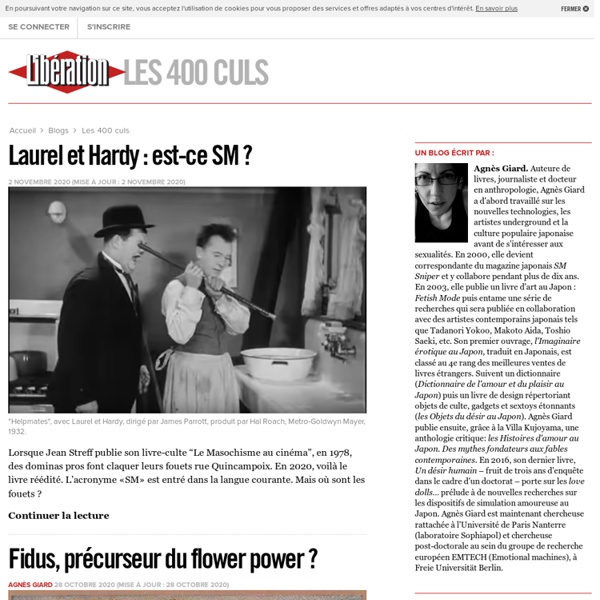



http://sexes.blogs.liberation.fr/
Related: SETX • Blogs féministes/-nins • Féminisme & genreSurviving Infidelity: What Wives Do When Men Cheat Dressed in a black suit with a subdued silk scarf, Silda Wall Spitzer stood by her husband, New York Gov. Eliot Spitzer as he announced his resignation to a room full of reporters. When the cameras stopped flashing, however, a husband and wife were left to deal with an alleged violation of marriage and above all, busted trust. Gov. Spitzer has referred publicly to the alleged infidelity as a "private matter," but the experience is rooted in human behavior and family sociology. That means social scientists can to some extent get into the minds of the parties involved.
Flamingo - global insight and brand consultancy Our Head of UK Andy Davidson and Chris Francis, Managing Director of Flamingo Tokyo, feature in Campaign Asia to uncover the truth about our understanding of Insight. Article first published in Campaign Asia and you can read the full report below. “Why is an insight like a refrigerator? Because as soon as you look in it, a light goes on” Defining an insight is almost as hard as defining a joke. Most of us agree that insights should illuminate, inspire, cause us to slap our heads and say “Yes! Growing Out My Bush Day 180 - From Bare to Bush It’s been 180 days since the inception of this (almost accidental) project. True, I meant to start a blog that documented my pubic hair regrowth, but I never in a million years envisioned that it would become such a renown and adored fixture within Tumblr society.
No, The Existence of Trans People Doesn't Validate Gender Essentialism By now, it should be no secret that allyship with trans people is a core component to intersectional feminist thought. Yet there is still one question I consistently hear from well-intentioned friends and colleagues: “Don’t trans people validate the idea that men and women must exist within certain societal roles? Doesn’t it perpetuate gender essentialism?” This question – conjoined with the constant assault of doubt and skepticism aimed at the entire existence of trans identities – has likely haunted a fair share of politically conscious trans activists themselves at one point or another over the course of their transition.
Why Men and Women Get Jealous for Different Reasons Cheating on a spouse or significant other is sure to cause feelings of jealousy and hurt in the spurned partner. But men and women differ on what part of cheating they think is the worst: Men tend to be more bothered by sexual infidelity, while most women are bothered more by emotional infidelity. The prevailing explanation for this difference is the unique evolutionary roles played by men and women, but a new study suggests that it has more to do with the types of attachments people form in relationships. The widespread evolutionary explanation posits that men rank sexual infidelity as the greater sin because over the eons they learned to be hyper-vigilant about sex, as they could never be absolutely certain that their children were actually theirs. Women, on the other hand, became more bothered by emotional infidelity, because they are concerned about having a partner to help raise their children. Attachment to others
Abstract - SpringerLink Skip to Main Content Log In or Out Skip to Search Listen up, women are telling their story now I have been waiting all my life for what 2014 has brought. It has been a year of feminist insurrection against male violence: a year of mounting refusal to be silent, refusal to let our lives and torments be erased or dismissed. It has not been a harmonious time, but harmony is often purchased by suppressing those with something to say. It was loud, discordant, and maybe transformative, because important things were said – not necessarily new, but said more emphatically, by more of us, and heard as never before. It was a watershed year for women, and for feminism, as we refused to accept the pandemic of violence against women – the rape, the murder, the beatings, the harassment on the streets and the threats online.
What Falling in Love Does to the Brain Falling in love can wreak havoc on your body. Your heart races, your tummy gets tied up in knots, and you're on an emotional roller coaster, feeling deliriously happy one minute and anxious and desperate the next. Research shows that these intense, romantic feelings come from the brain.